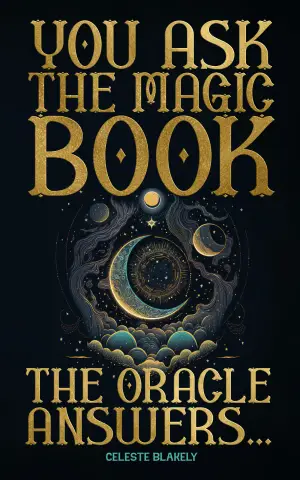Review of Patriarchy Blues: Reflections on Manhood by Frederick Joseph
When I first stumbled upon Patriarchy Blues, I was drawn in not only by its evocative title but also by Frederick Joseph’s reputation as a passionate advocate for social justice. As I delved into the pages, I was intrigued by how personal struggles can intertwine with larger societal issues—an exploration that promises to challenge your perceptions of manhood and the implications of patriarchy. Joseph’s narrative feels like an intimate conversation with a close friend, and I couldn’t help but lean in, eager to absorb his wisdom.
The book is a powerful reflection on the multifaceted nature of masculinity, race, and identity. Joseph draws upon his own experiences—tackling childhood traumas, the complexities of racial identity, and the crushing weight of societal expectations—to provide a candid assessment of what manhood means, particularly in the context of the systemic inequalities that persist today. The staggering statistics he presents, such as the predominance of white men in leadership positions, serve as a grim backdrop to his reflections, prompting readers to consider how deeply embedded these issues are in our everyday lives.
One of the standout aspects of Joseph’s writing is his unflinching honesty. He doesn’t shy away from discussing the pain of an absentee father or the struggles faced in his own community, yet his tone remains hopeful. It’s this balance that makes his insights so compelling. His poetry and personal letters scattered throughout the book serve not just as artistic interludes but as raw, poignant slices of truth that resonate with anyone who has grappled with their identity in a world governed by rigid stereotypes.
A particularly striking quote from the book lingers with me: “To name the problem is to take the first step towards dismantling it.” This serves as a parallel to the broader societal issues he tackles, reminding us that acknowledgment is crucial. Joseph’s exploration of masculinity is intertwined with his examination of race and sexuality, intertwining personal narratives with social commentary in a style that is both lyrical and insightful.
The pacing of the narrative flows naturally—sometimes tender and reflective, other times robust and urgent. It mirrored my own emotional investment in the subject matter, as I found myself oscillating between anger and empathy, frustration and understanding. Joseph’s ability to navigate these complexities while maintaining clarity is a testament to his prowess as a writer and thinker.
Patriarchy Blues isn’t just a book for men to read; it’s a vital text for everyone. It invites all of us—regardless of gender or background—to reconsider our roles within a patriarchal society and encourages a collective reckoning with systemic injustices. I believe this book will resonate deeply with activists, educators, and anyone seeking to understand the nuances of intersectionality and the responsibilities we hold in dismantling patriarchal structures.
For me, reading Patriarchy Blues was more than just an intellectual exercise; it was a compassionate call to action. Joseph’s reflections left a lasting impression, urging me to confront not just the injustices in society, but also the ones I may perpetuate unknowingly. I wholeheartedly recommend this book to anyone willing to engage in an honest dialogue about identity, power, and the path toward a more equitable world. If you’ve ever felt the weight of society’s expectations based on your gender, race, or background, Frederick Joseph’s words will resonate, inspire, and empower you to take part in the necessary conversations that will shape our future.
Discover more about Patriarchy Blues: Reflections on Manhood on GoodReads >>






